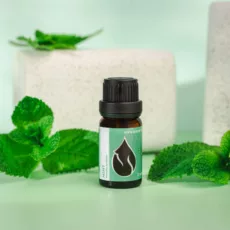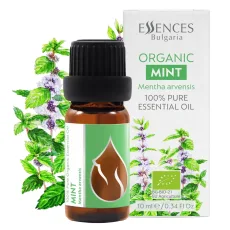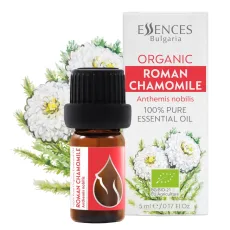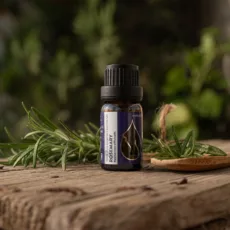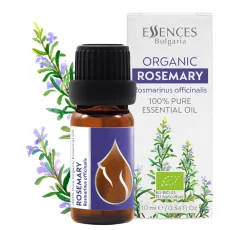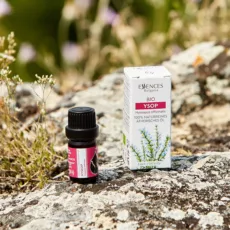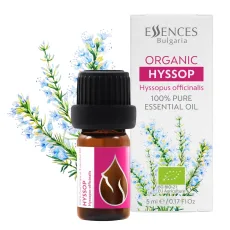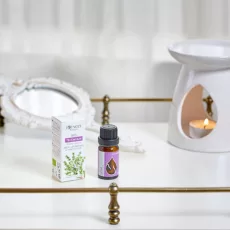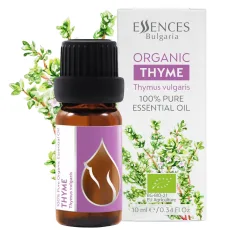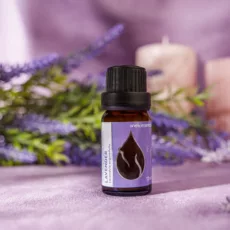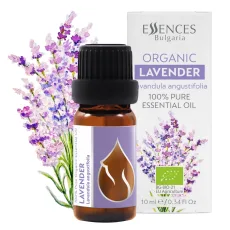6 Essential Oils for Cough and How to Use Them

Coughing is a natural protective mechanism that cleans the respiratory tract of mucus and secretions. By itself, coughing is not a disease, but very often it is a symptom and one of the main signs of a respiratory system disorder.
Essential natural oils are a natural alternative for relieving cough symptoms and supporting recovery. Whether applied to the skin or inhaled, they significantly improve health and prevent possible future complications. In this article, we will introduce you to the 6 best essential oils for cough.
How essential oils work against cough?
Essential oils for cough are effective in two ways. Firstly, they fight the infection by killing toxins, viruses, or bacteria that cause the cough, and at the same time, they relieve coughing by thinning bronchial mucus. Essential oils soothe the irritated throat. By stimulating the activity of the epithelium and the muscles of the respiratory tract, they facilitate the removal of phlegm and make breathing easier.
6 essential oils for cough you can’t do without
Thyme essential oil
Thyme essential oil is indispensable for cough. Its thymol content boosts immune protection and acts as a natural anti-inflammatory agent. Thyme essential oil thins tough secretions and clears the respiratory tract. Thyme essential oil is an expectorant and bronchospecialist.
Adding its antiseptic, antiviral, and antibacterial properties – this essential oil actively fights all pathogenic microorganisms that are resistant to antibiotics.
Peppermint essential oil
Peppermint essential oil is closely related to respiratory health and is considered one of the best essential oils for cough. Its composition shows mucolytic and anti-inflammatory action. Peppermint essential oil contains menthol, which has antiviral and antibacterial properties.
A 2014 study found that this substance can soothe spasms, relax the smooth muscles of the respiratory tract, and ease breathing. Menthol also has a cooling effect on the body and helps improve nasal airflow.
Roman chamomile essential oil
The role of Roman chamomile essential oil in treating nervous cough, shortness of breath, or nervous asthma has long been recognized. Roman chamomile essential oil has a natural calming, anti-inflammatory, antispasmodic, and analgesic effect.
Its action is particularly intense and the effect appears quickly. It is completely safe and gentle on the skin and mucous membranes. Research shows that Roman chamomile essential oil can help relax the bronchi, reduce irritation of the mucous membrane, and thereby relieve cough.
Rosemary essential oil
Studies on the antispasmodic effect of rosemary essential oil show that it is a potentially healing agent for bronchial problems. It fights cough by relaxing the muscles of the respiratory system, helping to break down secretions and reduce inflammation. Rosemary essential oil contains cineole, which reduces the frequency of coughing fits in people with asthma and rhinosinusitis. It also has antimicrobial and antioxidant properties, acting as a natural immune booster.
A 2011 study, published in Evidence-Based Complementary and Alternative Medicine, found that a spray containing essential oils of rosemary, peppermint, oregano, and eucalyptus could improve symptoms of upper respiratory tract diseases among 26 participants in the control treatment group. By inhaling this blend of essential oils five times a day for three days, researchers reported that participants experienced greater symptom improvement, including reduced cough, sore throat, and hoarseness. Just 20 minutes after inhaling the essential oil spray, participants noticed improvement.
Lavender essential oil
Lavender essential oil has expectorant and bactericidal action and helps relieve cough symptoms by thinning already deposited bronchial secretions. It reduces the activity of bacterial toxins – including staphylococci and streptococci – and aids in their removal. Lavender essential oil has a strong calming and anti-inflammatory effect.
Its anti-inflammatory action is due to lavender’s ability to increase leukocyte activity and stimulate all immune system cells. Using lavender essential oil in combination with deep breathing can help relieve asthma attacks while reducing inflammation caused by allergies and asthma.
Hyssop essential oil
The antibacterial properties of hyssop essential oil make it a powerful protector of respiratory health, capable of counteracting the main infection causing the cough. Its antispasmodic and strongly expectorant action helps thin bronchial secretions and clear the respiratory tract of phlegm, relax bronchial spasms, clear the airways, and ease breathing. Hyssop essential oil also has an anti-inflammatory nature, helping to heal irritated tissues in the throat while exhibiting antihistamine properties, helping to relieve asthma attacks.
Essential oils for cough in children
Children have a much less developed immune system, which means they are more susceptible to the potential toxic contraindications of essential oils. Most essential oils are quite strong, and treatment in children should be applied only after consultation with a pediatrician or certified expert. Since essential oils can cause severe allergic reactions, we at Essences Bulgaria recommend applying aromatherapy only after consulting a specialist.
How to use essential oils for cough at home
We can easily and effectively relieve cough at home with a few simple steps and the right essential oil. Here are the methods for treating cough at home.
Steam inhalation: This method is very strong and intensive. Take a large bowl of boiling water, add 1-2 drops of essential oil. Cover your head well with a towel so that the steam rising from the boiling water is trapped inside. Keep your eyes closed and breathe deeply (inhale through the nose and exhale through the mouth). Apply several times a day for a few minutes (initially recommended for about one minute, gradually increasing the duration up to about four minutes).
Diffusing the chosen oil: An electric diffuser is a container in which water is poured and essential oils (4-7 drops) are added. When turned on, it disperses the water and essential oils as a cool mist. This is the gentlest and least intrusive method for inhalation. This way, you also purify the room air from pathogenic microbes.
Applying to the skin for localized action on key areas: chest, throat, sinuses: First rule: NEVER apply undiluted essential oil directly to the skin – this can cause a serious reaction (for example, burns if the skin is then exposed to sunlight). Always dilute essential oils with a carrier oil, such as hemp, grapeseed, rosehip, apricot, or almond oil.
Essential oils for cough – recipes
- For chest massage: Mix 2 tablespoons of almond oil and 2 tablespoons of natural unscented coconut oil with 2 drops of rosemary and 6 drops of peppermint.
- Add 4-5 drops of lavender essential oil and some Epsom salt to a warm bath, relax for 20 minutes.
- Dissolve 4 drops of thyme, Roman chamomile, or lavender in a bowl of boiling water to make a steam inhalation.
